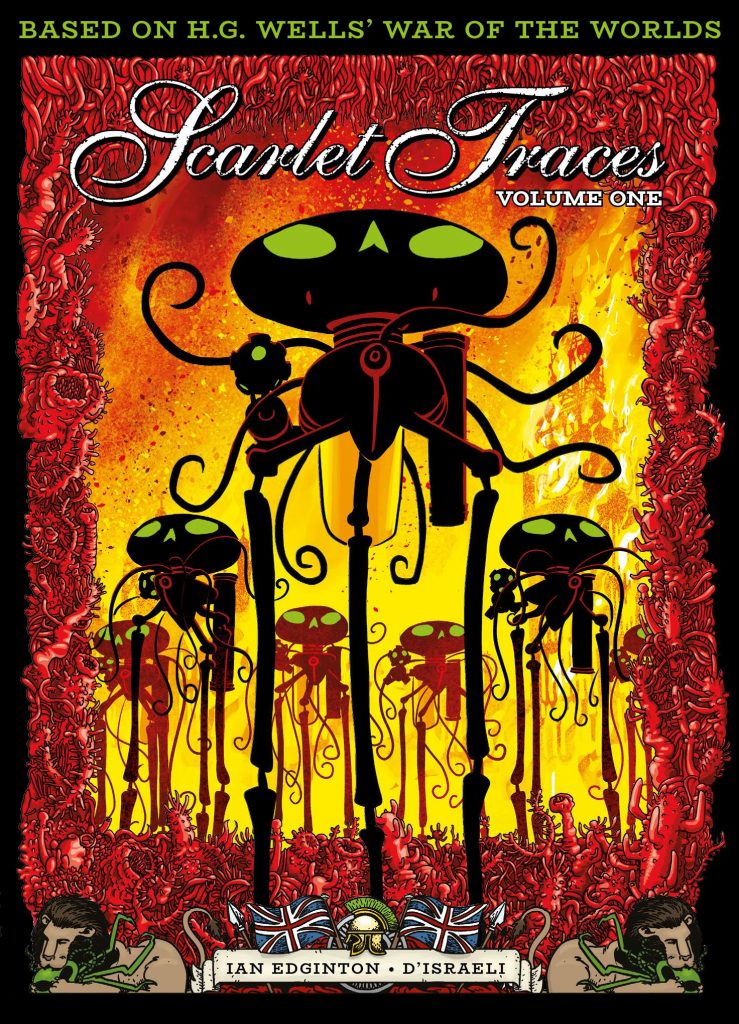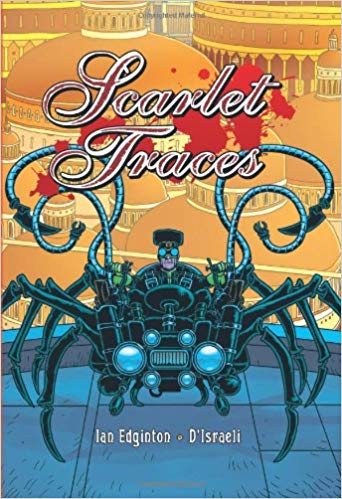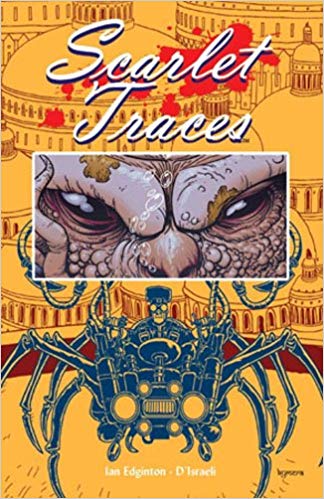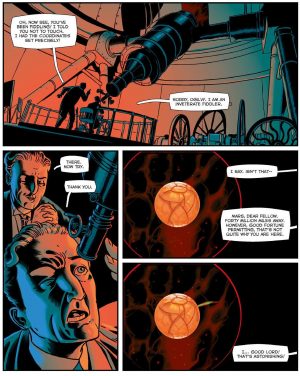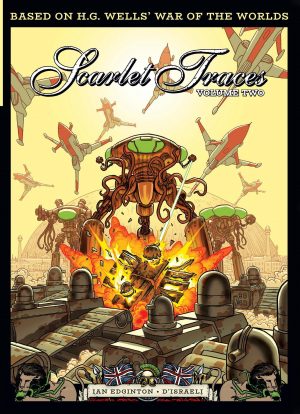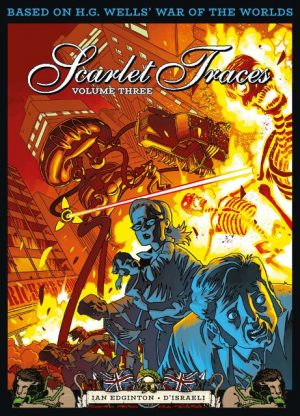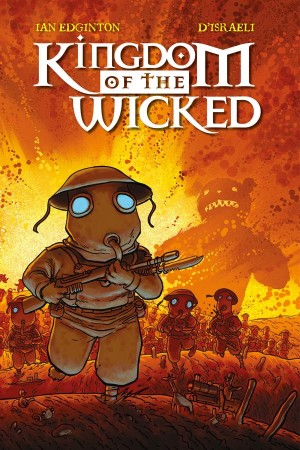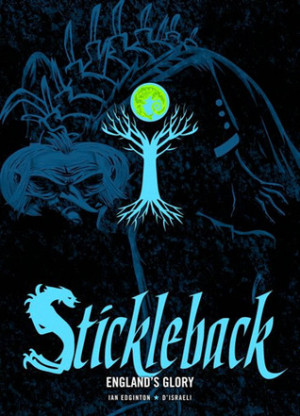Review by Jamie McNeil
H.G.Wells’ novel The War of the Worlds is very influential science fiction, never out of print since publication in 1898 and widely adapted. Confined to his bed through illness as a boy, it’s one of the many books author Ian Edginton read and reread, leaving the idea for what would eventually become Scarlet Traces. What happened to all the discarded Martian technology? What secrets could you unlock and how would it influence technology, society and history once you realised you were not alone in the galaxy?
It’s been ten years since the events of The War of the Worlds and Britain has become the dominant world power, thanks to engineering advances made through a study of Mars tech. In London Major Robert Autumn Esq. is writing his memoirs in the prime of his life, much to the amusement of his manservant and friend Sergeant Archie Currie. Both served as soldiers and later spies for Queen and Country, new machinery and weapons rendering them obsolete. Then two police inspectors knock at the door looking for Archie. His brother Davy is in jail for causing trouble while searching for his daughter Katie, who travelled to London in response to an advertisement for housekeepers. Now she’s missing and Davy fears the worst. The mystery leads Robert and Archie to Scotland where people are starving in the wake of the industrial revolution, back to London’s underbelly and into the rolling English countryside, but there’s a pus-infested core to this grand Empire and the people responsible will do anything to cover it up. Now Robert and Archie are fighting for their lives, justice and the soul of Britain.
Scarlet Traces opens with Edginton and D’Israeli’s adaptation of The War of the Worlds, previously published by Dark Horse and still available online. It provides a background for the primary story with some differences to the source material, but captures the essence of the original: the horrors of war, arrogance of Empire and how crisis reveals both fascism and kindness. D’Israeli crafts some tense and terrifying scenes, panic and fear emanating from the page as wanton destruction ensues. It’s a good adaptation with Edginton nailing the local dialects, a terrified parish curate preaching end-time judgements is convincing, and tender moments of reunion are touching. The body of Scarlet Traces does not share Wells’ optimism for the better qualities of the human race. “There is a heart of darkness in this green and pleasant land. A wretched purgatory where the weak, poor and dispossessed are a commodity abused and exploited for the luxury and providence of others.” Like D’Israeli’s macabre and broody atmosphere, Edginton’s script is scathing of the social, religious, economic and political powers that wield their power for a “greater good” that benefits only them. As bleak as the themes are, writer and artist add some funny moments with many characters resembling pop culture icons of the 20th Century. You have to be a certain age to appreciate them but there’s fun to be had in looking for them.
Scarlet Traces Volume One is a delicious blend of steampunk sci-fi, crime noir, horror and juicy conspiracy thriller, superbly written and meticulously illustrated. Its dark plot twists keep you on the edge of your seat. Separate Dark Horse editions of both The War of the Worlds (be sure it’s by Edginton and D’Israeli) and Scarlet Traces are readily available for would-be collectors. The saga continues in Scarlet Traces Volume Two.
